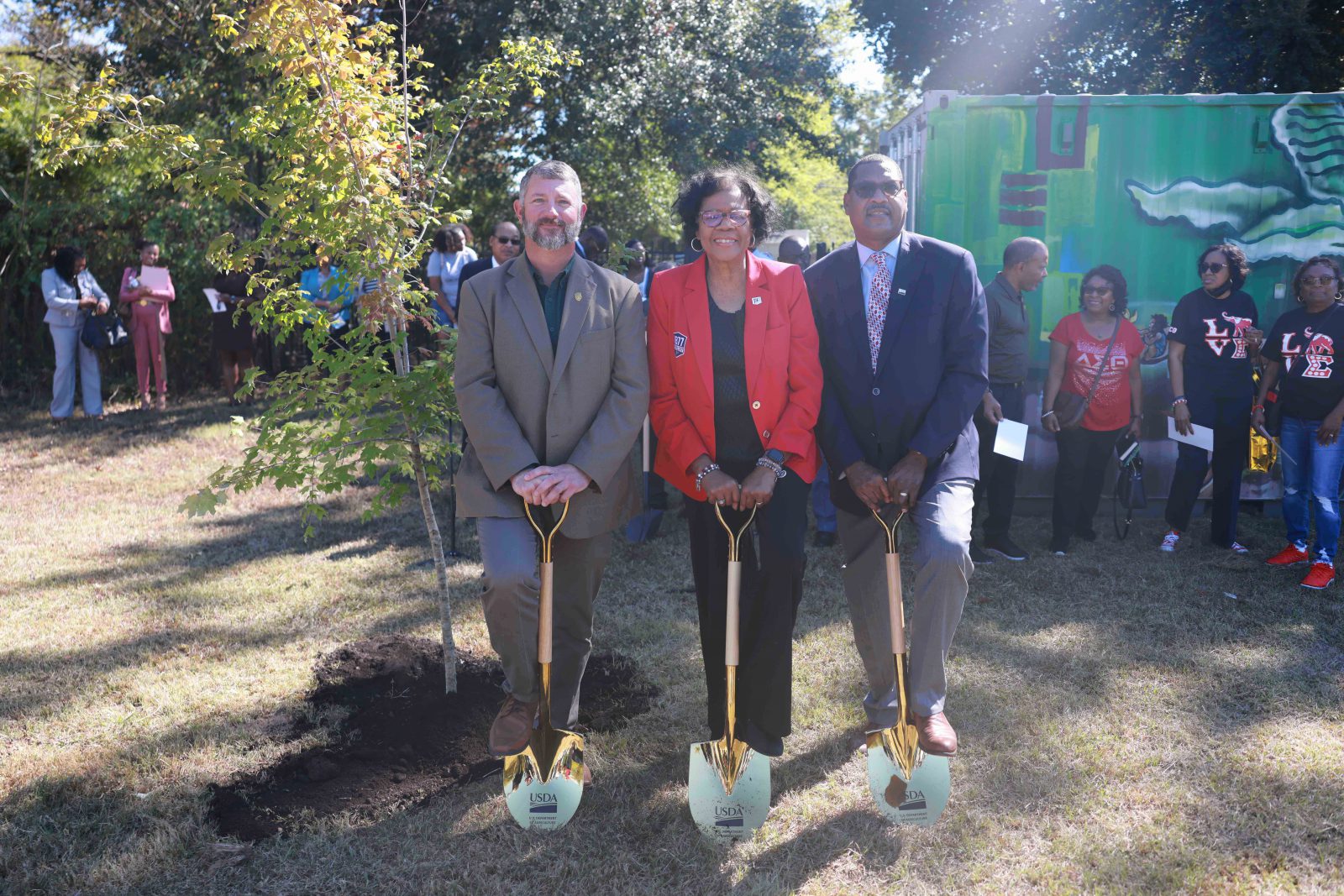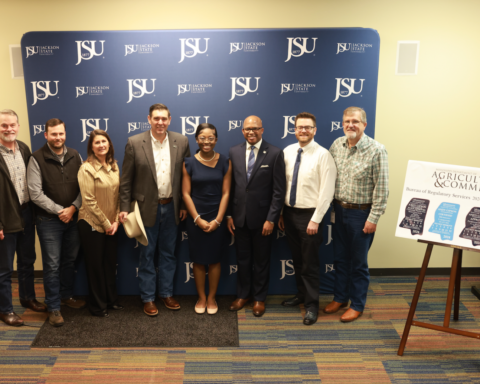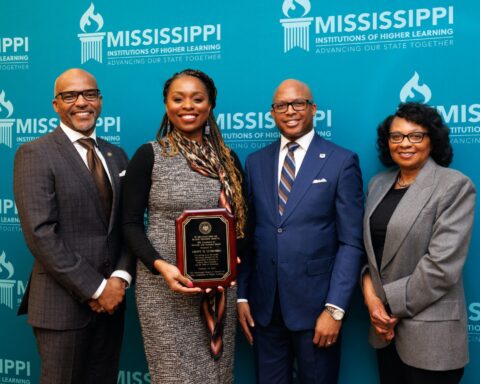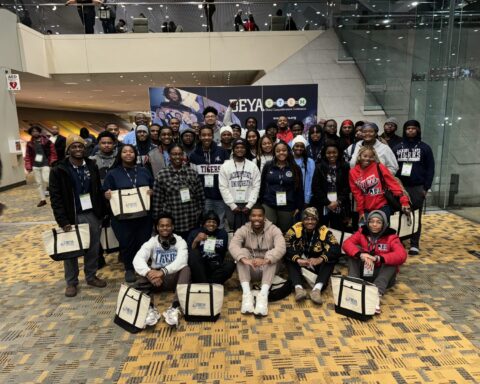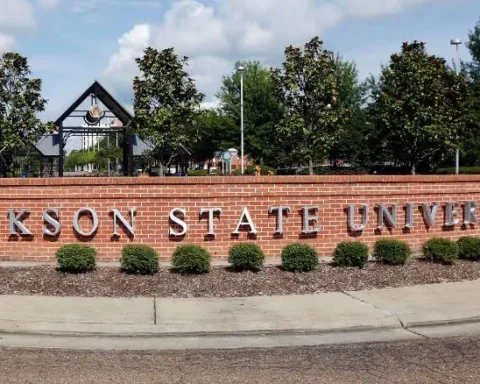Courtesy of Jackson State University
Jackson State University is the recipient of a $10 million grant from the U.S. Department of Agriculture as announced by JSU Acting President Elayne Hayes-Anthony, Ph.D., during a press conference in the JSU Blackburn Learning Garden on Friday, Oct. 13,. The award is one of the largest in the university’s history.
Proceeds will help fuel The Gateways to a Greener Jackson, an initiative led by JSU to engage and employ community partners in the completion of projects that enhance equitable access to tree canopy, reduce stormwater runoff and implement and maintain green spaces in underrepresented communities. City collaborators are Jackson, Rolling Fork, Vicksburg and Greenville, Mississippi.
“Jackson State is the lighthouse of the community and a long-time partner. Our efforts today can help create rural prosperity and improve the quality of life for Mississippi citizens. We are committed to ensuring that this endeavor truly benefits our institution and the underserved,” said Hayes-Anthony. “Most importantly, I want people to recognize JSU as a true force and the life-changing ripple effect it can produce through the great work that is constantly underway here.”
The USDA Forest Service is investing $18 million in projects tied to Mississippi, including $10 million to Jackson State University Office of Community Engagement, to increase access to trees and the social, health, and economic benefits they provide. Other Mississippi recipients include 2C Mississippi, Madison County, Wildlife Mississippi, National Baptist Convention USA, and Minority Farmers of the South.
“With this historic investment by the Biden-Harris Administration, we seek to minimize the negative impacts of climate change in underserved communities and to expand and improve tree canopy in urban areas that have lacked access to nature and community infrastructure in the past,” said USDA Under Secretary Homer Wilkes, Ph.D. “This project will bring new trees and expertise to not only this campus but the entire community. Jackson State is a perfect example of how urban forests and the people who rely on them are served by a whole range of programs.”
Of the total funding, the Forest Service awarded $209 million to community-based organizations, tribes, municipal and state governments, non-profit partners, universities, and other eligible entities across the Southern Region. These investments will plant and maintain trees in disadvantaged urban communities, tackle the climate crisis, and support jobs and workforce development.
The funding, made possible by the Inflation Reduction Act, is part of a historic $1.5 billion investment in the Forest Service’s Urban and Community Forestry Program. The funding supports local communities and the organizations that serve them as they work to increase tree cover in disadvantaged spaces and boost equitable access to nature.
“Investing in urban community forests is investing in people. Trees and nature improve mental health, increase home values and provide other ecological benefits, such as cooling communities during summer’s heat,” said Regional Forester Ken Arney. “I am thrilled to see such an investment in the Southeast. This builds upon on our long-standing tradition of connecting people with the benefits of nature.”
The Urban and Community Forestry Program supports the Justice40 Initiative, which aims to ensure that 40% of the overall benefits of certain federal investments flow to disadvantaged communities that are marginalized, underserved, and lack access to trees and nature.
All grant funding will flow to disadvantaged communities thanks to an applicant tool, which uses the White House Climate and Economic Justice Screening Tool to identify eligible communities. This geospatial mapping tool identifies communities faced with significant burdens, such as climate change, energy, health, housing, legacy pollution, transportation, water and wastewater, and workforce development.
The Forest Service supports vibrant and healthy urban communities through supporting healthy urban forests.

